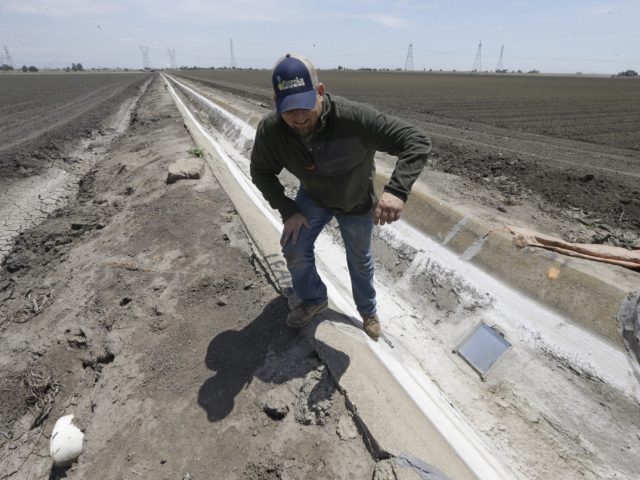The Pacific El Niño has battered California with much-needed rainstorms, leading to record rainfall in some areas–but state farmers are unlikely to see any water deliveries from federal agencies for a third straight year.
The current El Niño is already the strongest since 1950 in many areas of California, including the fertile San Joaquin Valley, where many of the country’s fruits and vegetables are grown. Fresno has seen 6.61 inches of rain since October 1; the historical average is 4.64 inches, according to the Fresno Bee.
There is more rain on the way: the National Weather Service forecasts two new storm systems will move into the area on Monday and Tuesday, dropping rain in the Valley and snow in the Sierra Nevada.
Meanwhile, monster waves caused by high surf have pummeled coastal areas across the state. Forecasters predicted 6-10 feet waves in Los Angeles and Ventura Counties were possible through late Monday, with waves reaching as high as 25 feet at the Central Coast. Erosion caused by pounding surf led to the collapse of a seaside sidewalk in Pacifica on Sunday.
Still, even with all the rain brought on by El Niño storms, California farmers are not optimistic that water agencies will allocate any irrigation water to them this year. The Westlands Water District, supplier of hundreds of farms in the San Joaquin Valley, has already warned farmers that it may not be able to make any deliveries this year, according to the Associated Press. If the district doesn’t deliver, it would mark the third straight year in which farmers received zero percent of its allotted water.
“We’re not going back to the good old days,” California Water Foundation executive director Lester Snow told the AP. “We’ve reached a new normal in volatility, and we need to adapt to that.”
California farmers have long tangled with the state’s environmental advocates, with each side claiming the other could do more to conserve water during a punishing four-year-long drought. However, residents now believe adding water storage should be the state’s top funding priority, a dramatic shift in public sentiment from just one year ago.
San Joaquin Valley farmer Shawn Coburn told the AP that he blames environmental regulations favoring fish over people for farmers’ water shortages.
“We may never recover,” Coburn said. “This may be the long death spiral.”

COMMENTS
Please let us know if you're having issues with commenting.